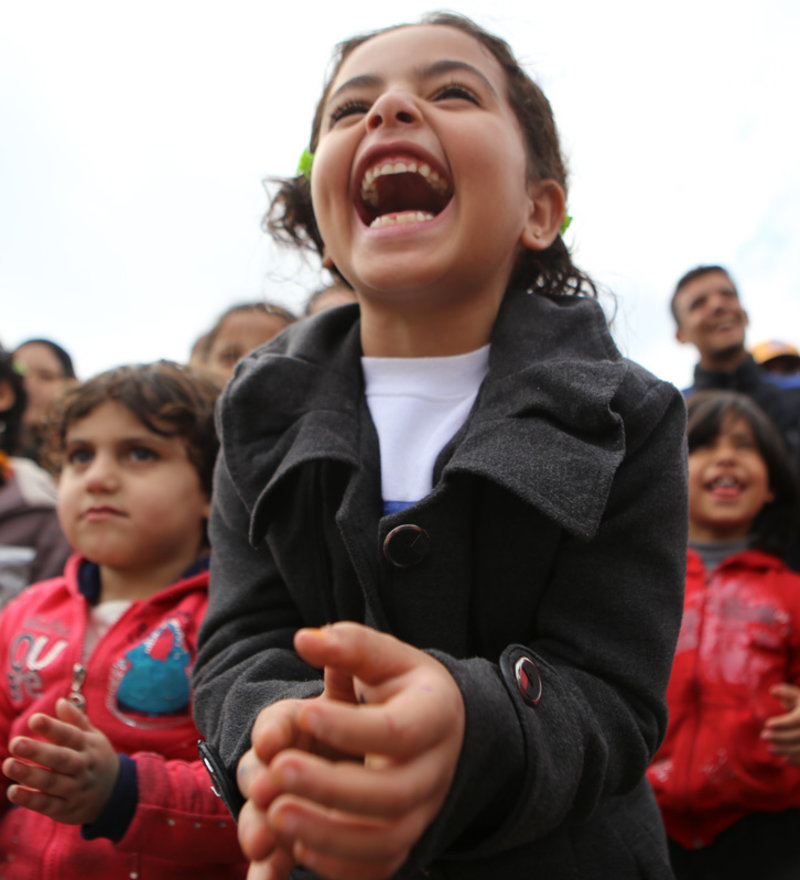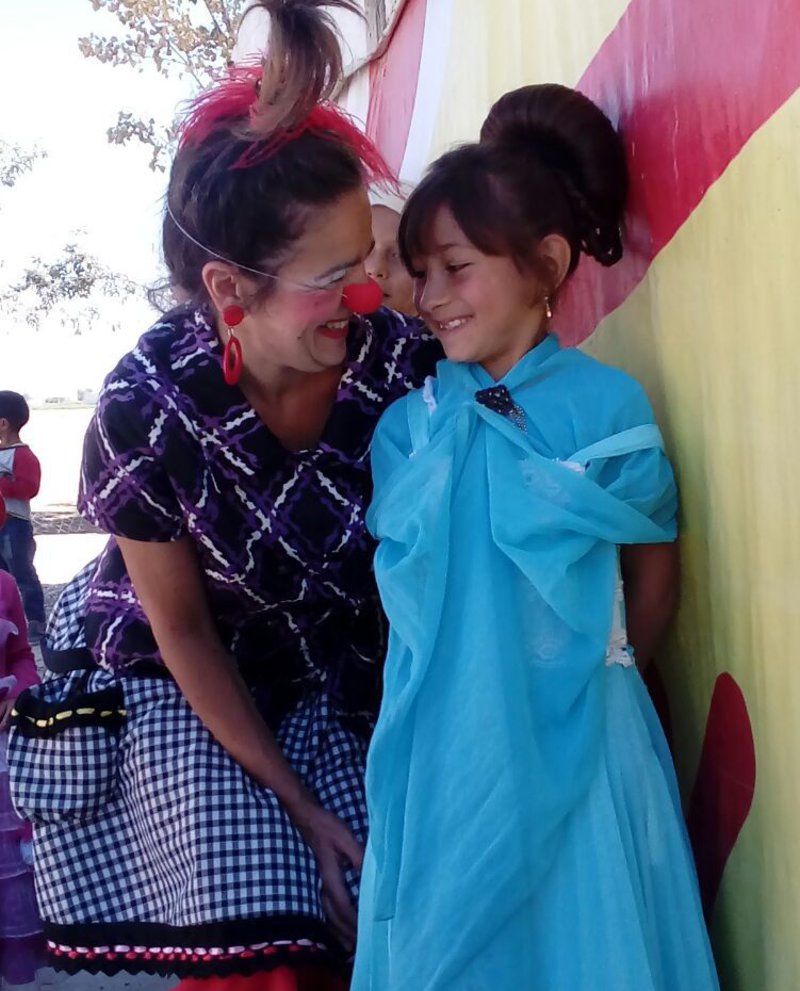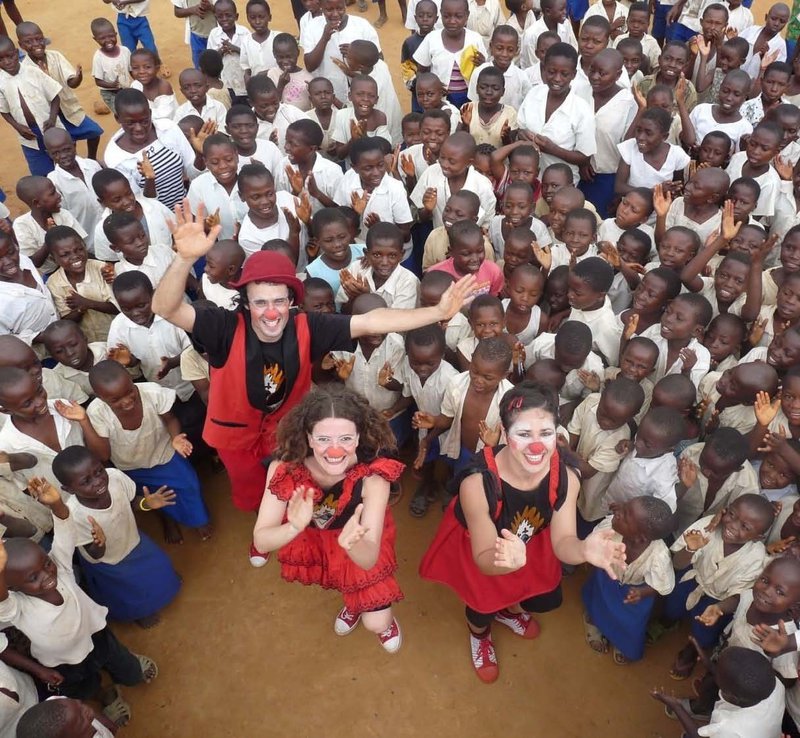Clowns without borders
Clowns Without Borders has had its work recognised scientifically: when young victims of armed conflicts with symptoms of post-traumatic stress come into contact with the artists, their emotional state improves
If the symptoms don’t improve, you can’t go on When the clowns’ actions are combined with TRT techniques, the effects are enhanced
What could be simpler and more accessible than a smile? The NGO Clowns Without Borders does not have to be told that. They know well enough. But society wants supporting data. Now the organisation has participated in an experiment and it has been confirmed: the presence of clowns in war zones aids children’s psychological state. It is a fact now proven by science. As the NGO explains: “Children and adolescents are not only the most vulnerable part of the population exposed to wars, crises and natural disasters, but they also represent the future of their country after this kind of traumatic event. Therefore, it is very important to invest in their recovery after the crisis, not only to alleviate their suffering but to create the emotional conditions so that they can learn, develop and improve their future.”
It all started a couple of years ago, when Clowns Without Borders decided to join forces with the Trauma, Crisis and Conflicts Unit of Barcelona (UTCCB), which belongs to the Psychology Faculty at the Autonomous University of Barcelona (UAB), with the support of the Nuevas Cimas Foundation. They wanted to observe the impact of actions aimed at reducing the post-traumatic stress of refugee children who have suffered armed conflicts in the Middle East. The research, which is to be published in full in the Journal of Traumatic Stress, was conducted in situ between September 2017 and February 2018, when Clowns Without Borders made three expeditions to Lebanon. More than a dozen artists participated, attending five schools in the area. The impact of this work has been evaluated and related to the methodology TRT (Teaching Recovery Techniques). These recovery techniques, created by the Children and War Foundation in the late nineties, aim to provide tools to children who have suffered serious trauma: they are strategies that help them detect reactions caused by trauma and then control them to improve their emotional state.
The empire of fear
Ingeborg Porcar, director of the trauma unit of the UAB, describes possible symptoms: intrusive thoughts, flashes of events, nightmares, hyper-alert states, being scared by the slightest thing, among others. All of this leads victims to adopt an attitude of avoidance, trying to blank out the images, and the emotion related to the events they have experienced. “As they’re suffering so much, they try to distract themselves and this makes it all even more present.” The brain, Porcar continues, tries to “bring order to what happened.” The burden is huge: “You can’t do anything, you can’t move forward. If the symptoms don’t improve, you can’t go on.”
How can these situations of trauma be addressed when the setting is a war? Sending a contingent of mental health professionals is not a feasible option. Ywt, there is the possibility of applying the aforementioned recovery techniques, which can be practiced by professionals who are not psychologists, once trained. The children’s teachers can do it, for example. To get started, you only need one or two psychologists who coordinate the units and take care of the most affected children. “These techniques, which are not actually a form of therapy, teach children how to deal with what happened.” Or what is still happening. Porcar says: “If you train 15 people, you can do a good job in war and catastrophe zones, where psychologists are not available.”
The work done by Clowns Without Borders is very important, Porcar says. “When the clowns’ actions are combined with TRT techniques, the beneficial effects of both actions are enhanced.” Indeed, the study found that combining the TRT techniques and visits from clowns had the most beneficial effects on children, although surprisingly the clowns managed to improve some of the symptoms on their own.
Just the beginning
The children’s improvement facilitates their emotional and behavioural well-being, and guarantees that they will develop and have a future. And according to the researchers, these positive results remain for at least three months, which was the period of follow-up in this study. The NGO aims to continue working in this direction and is looking for help to expand the intervention centres so that more children and adolescents will benefit from them. Wherever they go, they always hear the same question: “When are you coming back?” To continue with the project, the NGO has launched the campaign “Fem riure, fem futur” (Let’s laugh, let’s make the future).
feature






